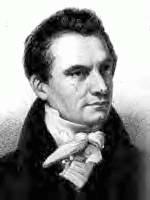Babbage Principle
The Babbage principle (after Charles Babbage ) states that the division of a work process into differently demanding sub-processes lowers the labor costs for production . Babbage first formulated this principle in his work On the Economy of Machinery and Manufactures , published in London in 1832 .
Besides Adam Smith, he found further advantages of the division of labor .
Furthermore, the Babbage Principle is an inherent premise in Frederick Winslow Taylor's Scientific Management .
Assumptions
The prerequisite is the different remuneration of differently demanding work (with regard to qualifications, effort, etc.).
literature
- Joachim Wagner: The Babbage Principle . In: Wirtschaftswwissenschaftliches Studium (WiSt), 11th year, issue 12 (December 1982), pp. 588-590.
-
On the Economy of Machinery and Manufactures , London 1832, online at Project Gutenberg (English)
- German edition: The economy of the machine . Kulturverlag Kadmos, Berlin 1999 ISBN 3-931659-11-9
